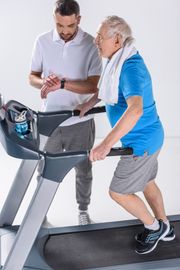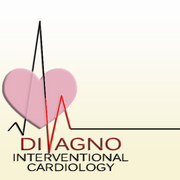How Do Nuclear Stress Tests Support Heart Health?

If you are suspected of having coronary artery disease—or have already been diagnosed—your doctor may recommend that you have a nuclear stress test. During this test, imaging technology is used to measure various aspects of heart health. For many, the results can enhance treatment and even prevent future heart attacks. If you need a nuclear stress test, here are a few essential details to know about the process and how it can help support your cardiovascular health.
What Happens During a Nuclear Stress Test?
In general, nuclear stress tests take about three to four hours to complete. To begin the test, a specialist will inject a dyed radioactive chemical into a vein so that it can circulate through your bloodstream. Next, you will rest on a table, while your provider uses a special gamma camera to capture a photograph of the heart. The camera will pick up the flow of the chemical to determine how blood flows through your heart at rest.
 After the “rest” portion of the test, you will be asked to engage in moderate exercise—such as by running on a treadmill. Once your heart rate picks up, more radioactive chemicals will be injected into your veins and additional images will be taken. These photographs will reveal how your heart behaves during “stress.”
After the “rest” portion of the test, you will be asked to engage in moderate exercise—such as by running on a treadmill. Once your heart rate picks up, more radioactive chemicals will be injected into your veins and additional images will be taken. These photographs will reveal how your heart behaves during “stress.”
What Beneficial Data Does the Test Reveal?
The resulting images of a nuclear stress test will reveal significant data about the heart, including how well it is pumping blood or if it is damaged. It will also indicate the size of heart chambers and show if there are any blockages affecting the coronary arteries.
Your heart health specialist may use this data to determine if you have coronary artery disease or a different condition that is affecting your cardiovascular abilities. Depending on the specifics, this information may help your doctor devise an effective treatment plan to prevent complications—including heart attacks.
If you are already diagnosed with a condition, this information may be used to assess the effectiveness of your current treatment and make adjustments if necessary.
Are There Any Risks?
Although nuclear stress tests do involve the use of radioactive chemicals, the amount of the substance is so small that it does not pose safety risks. If you have any medical issues that cause health risks during physical activity, let your provider know so proper precautions can be taken.
If you need a nuclear stress test in the Rochelle Park, NJ, area, turn to the services of DiVagno Interventional Cardiology, MD, PA. Specializing in cardiac care and screening, this practice offers a wide range of services to detect and monitor numerous heart health conditions—including coronary artery disease, high cholesterol, and high blood pressure. Using cardiac testing results, these doctors will devise a custom treatment plan to manage conditions and prevent complications. To learn more about how this provider can enhance your quality of life, visit their website. For appointments, call (201) 845-3535.
About the Business


